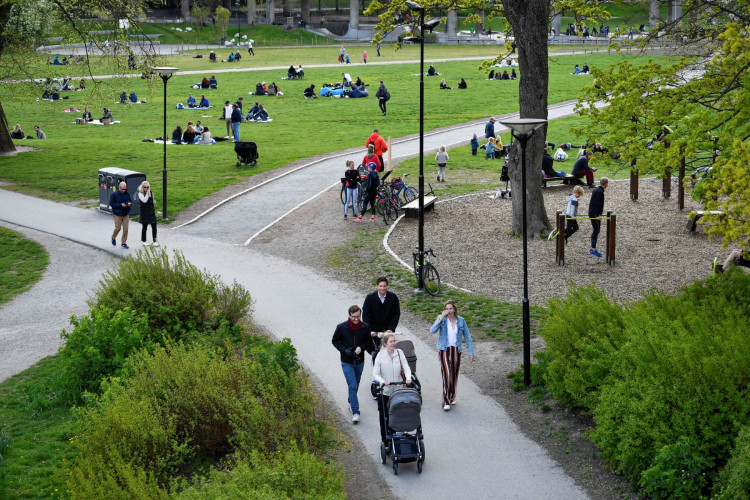Coronavirus, first detected in December 2019, has now killed 4,029 people in Sweden and infected 33,843 people as of Monday. There are also 1,957 patients who are still in intensive care today.
Sweden has reported a decline in its confirmed cases. From Sunday to Monday, the Nordic country only reported 31 new cases. The country's state epidemiologist Anders Tegnell noted that at its peak, COVID-19 was infecting 400 COVID-19 infections per week. The trend at present is only at 60 to 70 new cases weekly.
There has also been a low number of deaths in Sweden's nursing homes. At its peak, COVID-19 killed more than 100 people in nursing homes. At present, deaths are at 30 on the average.
The fewer number of new cases, however, was reported during a long weekend where people were at home.
Indeed, data from Telia, a Swedish telecoms company, reflected that fewer people are making long-distance journeys from Stockholm to the Baltic Island of Gotland. Specifically, commuters increased by 156% to 122% compared to the past week.
The issue in Sweden, however, is that for two days the country had the highest per capita death rate in the world for the past seven days among its Nordic neighbors. Per capita death rates are lower in Denmark (four), Finland (seven), and Norway (nine).
To put that in numbers, Sweden has 10.3 million inhabitants. The country has a death rate of 399 per million inhabitants. Norway has 43 per million, Denmark has 97 per million, and Finland has 56.
On the other hand, Sweden has fewer deaths per capita compared to other European countries where there were strict lockdown measures. For instance, France has 435 per million inhabitants, the UK and Italy 542 and Spain 615.
Critics are keeping watch on Sweden's herd immunity strategy. The country is under closed observation from other countries in the world for it chose not to close its country amid the pandemic.
Sweden's very own former epidemiologist has now expressed her doubt on the country's herd immunity strategy. Annika Linde said she now believed Swedish officials should have imposed tougher restrictions in the early stages of the pandemic.
Linde was the one who handled the country's response to swine flu and Sars from 2005 to 2013. She has become the first official to expressed doubts about how the present government is handling the pandemic.
"I think that we needed more time for preparedness. If we had shut down very early ... we would have been able, during that time, to make sure that we had what was necessary to protect the vulnerable," Linde said in one interview.





